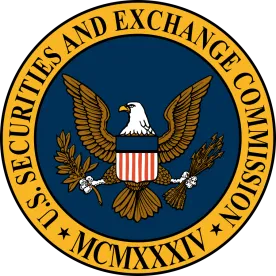On June 5, 2019, the U.S. Securities and Exchange Commission (SEC) adopted a package of rules and interpretations relating to the standards of conduct that broker-dealers and investment advisers owe to their customers.
The SEC’s rulemaking action included (i) the adoption of a new Regulation Best Interest (Reg. BI) specifically applicable to broker-dealers, (ii) a requirement for investment advisers and broker-dealers to deliver a new CRS Relationship Summary form (Form CRS) to retail investors at the beginning of their relationship, (iii) the SEC’s interpretation of the standard of conduct for investment advisers (Fiduciary Duty Interpretation), and (iv) the SEC’s interpretation of the “solely incidental” prong of the broker-dealer exclusion from the definition of investment adviser in the Investment Advisers Act of 1940 (Advisers Act).
In adopting the new rules, the SEC stated the new rules and interpretations are designed to enhance the quality and transparency of retail investors’ relationships with broker-dealers and investment advisers. In this regard, the SEC stated the rulemaking package is designed to enhance investor protections while preserving a retail investor’s access and choice in: (i) the type of professional with whom they work, (ii) the services they receive, and (iii) how they pay for these services.
Following are summaries of the principal components of the new rulemaking:
- Regulation Best Interest – New Standard of Conduct for Broker-Dealers. New Reg. BI requires that a broker-dealer must act in the best interest of its retail customers when making a recommendation of a securities transaction or an investment strategy involving securities, and the broker-dealer cannot place its own interests ahead of its customers’ interests. The SEC noted that Reg. BI enhances the standard of conduct applicable to broker-dealers beyond the current suitability standards applicable to broker-dealers set forth in the FINRA rules and the rules of national securities exchanges and other self-regulatory organizations. According to the SEC, the new standard of conduct draws from key fiduciary principles and cannot be satisfied through disclosure alone.
Reg. BI contains a number of new disclosure requirements and legal obligations for broker-dealers, as follows:
- Disclosure Obligations. Broker-dealers will be required to disclose material facts about the customer relationship, including specific disclosures about the capacity in which the broker is acting, fees, the type and scope of services provided, conflicts, limitations on services and products, and whether the broker-dealer provides monitoring services.
- Care Obligation. Under the new rules, a broker-dealer will be required to exercise reasonable diligence, care, and skill when making a recommendation to a retail customer. The broker-dealer must understand potential risks, rewards, and costs associated with the recommendation, and then must consider these factors in light of the customer’s investment profile and make a recommendation that is in the customer’s best interest. Reg. BI explicitly requires the broker-dealer to consider the costs to the customer of the recommendation.
- Conflict of Interest Obligation. Reg. BI requires that broker-dealers establish, maintain, and enforce written policies and procedures reasonably designed to identify and, at a minimum, disclose or eliminate conflicts of interest. This obligation specifically requires policies and procedures to: (i) mitigate conflicts that create an incentive for the broker-dealer’s professionals to place their interests or the interests of the broker-dealer firm ahead of the customers’ interests; (ii) prevent material limitations on offerings, such as a limited product menu or offering of only proprietary products of the broker-dealer firm, which would prevent the broker-dealer or its professionals from placing their interests ahead of the customers’; and (iii) eliminate sales contests, sales quotas, bonuses, and non-cash compensation based on the sale of specific securities or specific types of securities within a limited time period.
- Compliance Obligation. Under Reg. BI, broker-dealers must establish, maintain, and enforce policies and procedures reasonably designed to achieve compliance with the new rules as a whole.
- Form CRS Relationship Summary – Requirement for Both Broker-Dealers and Investment Advisers. Under the SEC’s new regulatory package, broker-dealers and investment advisers will be required to deliver a new document to retail investors at the beginning of their relationship, called a Form CRS. The purpose of the Form CRS is to provide a relationship summary to the client at the outset of the relationship. In the new Form CRS, firms must summarize information about services, fees and costs, conflicts of interest, the legal standard of conduct applicable to the firm, and whether or not the firm and its financial professionals have a disciplinary history or any disciplinary actions against them. The Form CRS will have a standardized Q&A format to promote comparison by retail investors.
- Interpretation on the Standard of Conduct Applicable to Investment Advisers.The SEC’s new regulatory package also includes a new interpretation of investment advisers’ standard of conduct under the Advisers Act. Under long-standing Advisers Act rules and principles, an investment adviser owes a fiduciary duty to its clients. This duty is principles-based and applies to the entire relationship between an adviser and its client. Under the new interpretations, the SEC reaffirmed and, in some cases, clarified certain aspects of the federal fiduciary duty that an adviser owes to its clients. The interpretation is intended to provide investment advisers and retail investors greater clarity about the investment advisers’ legal obligations.
- Interpretation of “Solely Incidental” Exclusion under Investment Adviser Definition. The broker-dealer exclusion under the Advisers Act excludes from the definition of “investment adviser,” and thus from the application of the Advisers Act to such broker-dealers, a broker-dealer whose performance of advisory services is solely incidental to the conduct of its business as a broker-dealer and who receives no special compensation for those services. The guidance issued by the SEC under the new regulatory package confirms and clarifies the SEC’s interpretation of the “solely incidental” prong of this exclusion. Specifically, the new interpretation states that a broker-dealer’s advice as to the value and characteristics of securities or as to the advisability of transacting in securities falls within the “solely incidental” prong of this exclusion if the advice is provided in connection with, and is reasonably related to, the broker-dealer’s primary business of effecting securities transactions.
Reg. BI and Form CRS will become effective 60 days after they are published in the Federal Register, and will include a transition period until June 30, 2020, to give firms sufficient time to come into compliance. The Advisers Act interpretations described above will become effective upon publication in the Federal Register.
The adopting releases are Regulation Best Interest: The Broker-Dealer Standard of Conduct (No. 34-86031) and Form CRS Relationship Summary; Amendments to Form ADV (No. 34-86032).





 />i
/>i
